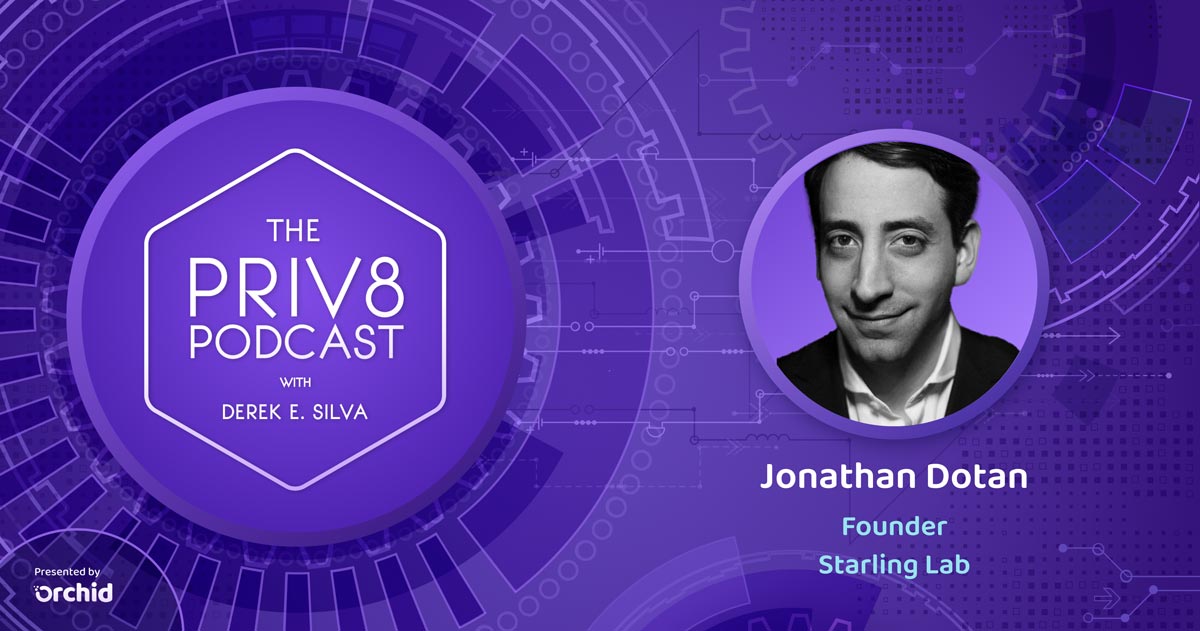
Jonathan Dotan on Decentralized Storage and Vulnerable Datasets
Jan 17, 2022
"Decentralized technologies are ideally suited for storing vulnerable data sets," said Jonathan Dotan, founder of Starling Labs. He was speaking to Orchid's Derek Silva on this week's episode of the Priv8 Podcast on restoring digital trust and protecting human rights with Web3 technology.
"For example, take the Shoah Foundation. Thirty years ago, Shoah was founded to collect the stories of survivors of genocide. Today, it has recorded the testimonies of more than 55,000 people. They are stored in an archive that has been very carefully curated to ensure that the world never forgets the tragedies that result from genocide and systemic violence.
"Incidentally, these testimonies represent an extremely powerful dataset, and subsequently, a very vulnerable dataset. There are a lot of governments and people that could want that type of thing to just disappear.
"That's why decentralized technologies are so ideally suited for storing this type of data. Relying on any centralized storage repository would only make the data even more vulnerable. By decentralizing its storage, the data is protected by a diverse topology of nodes.
"Indeed, blockchain network nodes can consist of anything from enterprise-grade servers to mobile phones. When it comes to Shoah's dataset, the diversity on blockchain networks allows individual activists—people like you and me—to say, hey, we want to stand up and preserve this critical history, and we're willing to lend both our storage and computing power to help seal this information into an immutable record."
Blockchain networks can also help journalists and activists record and verify events that are happening in real-time.
"For example, when a file is stored in a blockchain network, a chain of custody is immediately established. So when it comes to things like digital cameras, images that are captured can be saved with their associated metadata that establishes the time, date, and location in which it was taken." Therefore, uploading an image and its metadata into decentralized storage in real-time could help to establish more transparency in journalism and other types of data collection.
Check out Derek's entire conversation with Jonathan here. And don't forget to subscribe to Priv8 Podcast on your favorite streaming service.
If you enjoyed this blog, subscribe here for privacy news, commentary, and product updates from Orchid.



